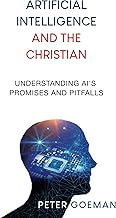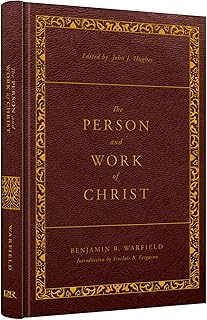Christ at the Center: The Fulcrum of Biblical Covenantalism –
Introduction: Part 1a, 1b, 1c, Jesus and the New Covenant: Part 2a, 2b, 2c,
The Covenant God Incarnate: Part 3a, 3b, The Role of Jesus, the Word, as the Ground of Meaning and Significance: Part 4a
Christ and Interpretation
As the Word issued by God in the act of creation Christ turned thought into deed and brought about, through the Spirit, the physical universe in which we dwell. This physicality is sustained by the same Word (Heb. 1:2-3), and He indeed is now an ineradicable part of it due to His Incarnation. This is not to say that Christ is restricted to the material realm. It is only to state the truth that He will always be a part of that realm. Thus, the material realm is invaluable to Him.
In this created theater our histories take place. They take place in the ineluctable presence of language; the language God spoke to Adam in the beginning; the language God thundered from the Mount; the language Jesus preached to the multitudes; the language we are to use to speak back to Him. And, we must say that whether we are God’s children or the devil’s brood, we do use this language to speak to God; even if it is used indirectly. And this is the first way in which Christ is the Savior of language: for He speaks the right interpretations of our existence to us in the midst of our baseless alternative explanations of ourselves.
Viewed in such a light Christ provides the hermeneutic of life. The term “hermeneutics” is essentially used to describe the interpretation of texts. However, in today’s intellectual climate, the word also describes the study of the preunderstandings of both the writer and the reader. The entire repertoire which a person brings to the text becomes a context. Texts are then expressions of these contexts in one way or another, and as such the category of “hermeneutic” has becomes a philosophical category taking up into itself a broad range of worldview concerns. Even those concerned with deconstructing the text do so unavoidably from their own worldview. So David Bentley Hart correctly observes that in Postmodernity in all its forms,
Critique is never merely doubt, but always a vantage (and advantage); it is always already principled, already dependent upon firm metaphysical assumptions, already a transcendental surveillance that has determined in advance the limits of every story’s credibility. – David Bentley Hart, The Beauty of the Infinite: The Aesthetics of Christian Truth, 7.
When this is seen, the criticisms of privileged groups by postmodernists, some of which have certainly added to our self-understanding, can and should themselves be held up as power-perspectives bidding for control of the conversation.
The Bible is a text and is (or is supposed to be) the Christian’s vantage point. Integral to this vantage point is the Person of Jesus Christ, the Logos of God, who is both a character appearing here and there in more or less conspicuous form, throughout the pages of the Bible, and is also its Author. This revealed Christ is, as we have presented Him, the Maker, Owner, Upholder, Redeemer, Judge, and future King over creation. Now we want to add this role of Interpreter to His curriculum vitae. Cornelius Van Til reminds us that,
Every fact and every law in the created universe is brought into existence by God’s creation. Every fact and every law in the created universe continues to exist by virtue of the providence of God. Every fact and every law in the created universe accomplishes what it does accomplish by virtue of the plan or purpose of God. God foreordains whatsoever comes to pass, through his Son Jesus Christ. – Cornelius Van Til, Christian-Theistic Evidences, 51.
So Christ’s Person and His roles within the created order situate Him in the center of conversation – or they should! This is because He gives man the interpretive key to his existence. God’s voice to humanity and God’s appearance as one of humanity ought to be seen as a communication of the intensity of Divine love, and as indicators of God’s gracious intentions for creation. Christ is the Savior of interpretation conceived of as worldview. The Incarnate Word fixes the Biblical Worldview in place, not as dumb and accidental as in the preaching of modern science, but as intentionally communicative between the Creator and the creature. Christ restores the right spectacles to our eyes. He is the true way of seeing.

